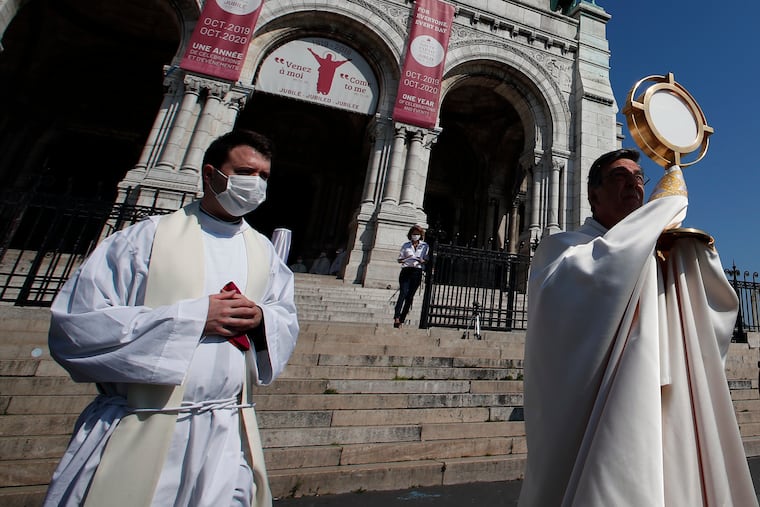Holidays celebrate faith just as coronavirus tests it | Editorial
The holidays upon us demand reflection, contemplation, and denial -- in the form of day-long fasts, lent, and forgoing leaven. The coronavirus has imposed similar demands.

Adding pain to the dreadful coronavirus crisis is the interruption of cherished religious holidays. Last week, many Jewish families held virtual Passover seders, a practice of which some rabbis don’t approve. This Sunday, the pews of churches across America will sit empty while Christian families celebrate Easter at home. And it seems likely that in a couple of weeks, Muslims will have to end the daily fast of Ramadan at home instead of in the traditional public feasts. The coronavirus has robbed families of experiencing together many firsts — first singing the questions, first communion on Easter, first iftar — and many heartbreaking lasts.
Twenty states — including Pennsylvania and New Jersey — have exempted religious institutions from their stay-at-home order, according to the Center for American Progress. Both Govs. Tom Wolf and Phil Murphy have called on religious leaders to find alternative ways to worship and on congregates to stay home. By allowing religious institutions to remain open, the states avoid constitutional and legal questions surrounding the ability of government to regulate religion.
While churches, synagogues, and mosques in our region are able to stay open, worshipers should stay at home. Many religious leaders, including the newly installed Archbishop Nelson Pérez, joined the governors in their calls and suspended in-person services. Ironically, the best way to be a member of a community right now is by keeping distant from it. That might seem antithetical to the very idea of community — based in gathering and shared moments — but it’s not. Community is about taking care of one another, and there are few manifestations of that more literal than ensuring that we don’t pass a disease from one to another.
» READ MORE: How Philly Catholics will celebrate Easter now that archdiocese has canceled in-person Masses
Against the backdrop of these holidays, the timing of this pandemic couldn’t be worse. But maybe, in other ways, these holiest of days for many religions are an opportunity to reflect on the faith that has kept us strong through painful moments in the past.
Beyond community celebration, these holidays demand reflection, contemplation, and denial — in the form of daylong fasts, lenten sacrifices, and forgoing leaven. It’s striking how the coronavirus has imposed similar demands: of denial and imposed isolation.
Of course, this health crisis imposes not just symbolic sacrifice, but brutal suffering, marked by real loss – of life, livelihoods, peace of mind, routines, and connections. But it has also been manifested in the good in our community, starting with the outpouring of appreciation and support for health workers who are putting themselves at risk to save lives. We have also seen examples of kindness and compassion to those who are most vulnerable.
» READ MORE: Coronavirus will complicate, but not stop, Passover for Philly area Jewish families
The underlying point of these holy days is the notion of renewal and rebirth — as individuals and communities. The yearning for renewal and return to our pre-pandemic lives is palpable. Whether it is staying at home, video chatting with family, tuning in to the broadcast of a sermon, or finding a drive-through communion, complying with stay-at-home orders moves us closer to liberation from this pandemic. Our traditions — regardless of religion — should give us hope and faith that we are strong enough to endure this crisis, together.